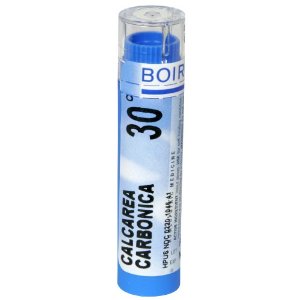Following a Different Path
Chronic nasal congestion could point to a nasal polyp in cats
It’s been a rough week for Rocket. If you’ve been reading this blog for awhile you’ll no doubt recall that over the months we’ve been trying to get to the bottom of and treat the cause of Rocket’s chronic nasal congestion. Our most recent efforts included working with a veterinary homeopath out of Denver. We seemed to be having some success…and then we digressed. Per her recommendation I made Rocket an appointment with a specialist at Gulf Coast Veterinary Services here in Houston to determine if had a nasal polyp. I could already feel the hemorrhage of cash, and we hadn’t even gone in yet!
And the tests begin…
After running a battery of tests including blood work, x-rays, a CT scan, and rhinoscopy, it was discovered that there indeed was a polyp about the size of a raisin in the far recess of his nasal passage. Wouldn’t you know it would be just out of reach to remove it with a scope, and it would therefore require surgery to do so. 😖
The day before the surgery we met with the surgeon, who has amazing bedside manner by the way, and she really put me at ease. Rocket sat in his open carrier on the floor listening and watching us talk about his case. The polyp would be sent off to a lab to determine if it’s indeed benign or not.
The big day
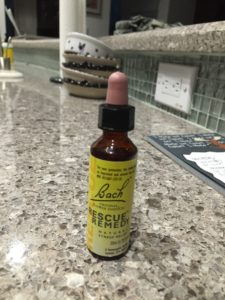
Bach’s Flower Rescue Remedy
Dr. Fascinelli in Denver gave instructions to give Rocket a dose of calc carb, the best homeopathic remedy for polyps, the morning of the surgery. I also used a few drops of Bach’s Flower Rescue Remedy on him–and a few more on me–that morning before we headed out to drop him off. He made it through the surgery without a hitch and spent the night in the hospital. I was able to pick him up the following afternoon, and while we were going over discharge information I was informed that he was the fan favorite among all the staff! He apparently enjoyed lots of cuddles, hugs, and was passed around to be held by all the staff. I’m sure he expects fan mail, personal tweets and perhaps his own Instagram account now, too. 😂 In fact, they hated to see him go, and several staff members come say goodbye! I guess we’ll have to schedule some face to face time with his groupies on our follow up visit in another week.
Recovering naturally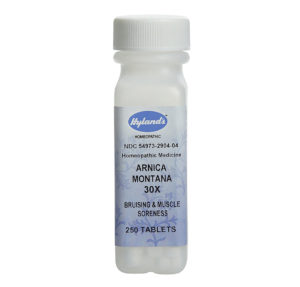
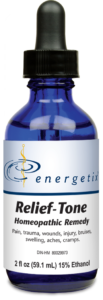
Rather than use the pain meds with side effects we were sent home with I opted instead for Arnica, a homeopathic remedy also recommended by Dr. Fascinelli. By muscle testing him I could determine when he needed another dose. I dissolved three pellets in about 1/4 cup of water and give him 1/2 ml with a syringe. I also gave him several doses of a homeopathic blend from Energetix called Relief Tone to help flush out all the anesthesia and drugs from his body. He is now enjoying his convalescence with Aylen and Gunner by his side as well as the occasional bath from Aylen to wash off that hospital smell. 😸
Don’t forget to treat the cause!
Despite this conventional medical intervention, I was reminded by Dr. Fascinelli that we still need to treat Rocket for the condition that allowed the polyp to grow in the first place. Surgically removing it is like just treating symptoms–in this case symptoms that developed a polyp. I’ll be reconnecting with her this week to start working on this phase of his healing. Because polyps are generally caused by inflammation we need to determine what caused it. It’s very possible that due to spending hours outside in our interior courtyard in the heat of the summer he may have developed some irritation from something that was airborne, similar to the way people develop seasonal allergies to trees, grasses, pollen, pollution, etc. He will be very sad when he figures out he will not be spending so much time sun worshiping this summer!
Who do you trust?
Traditional veterinary medicine is not the normal path I follow anymore, and this past week’s journey put me out of my comfort zone. I couldn’t help but notice all the animals and pet parents sitting in the waiting rooms and coming in for appointments. I wondered what they must be going through…the agony of a sick pet, the huge expense, and incessant worry that they no doubt carry. Just like in my own health care and that of my cats’, I believe in the value of emergency medicine. But I no longer trust or believe in the traditional medical/veterinary model when pharmaceutical and commercial pet food companies are the ones teaching and funding courses in the vet schools. They have created a system that promotes drugs and surgeries that try to force our pets’ bodies into submission rather than using natural foods, plants, and things in nature that work naturally with the body.
Dr. Randy Wysong, DVM, said it brilliantly in a recent newsletter regarding nutritional education taught in vet school by his professors:
Their wisdom came from what they learned from brochures provided to veterinary schools by the pet food companies. The pet nutrition taught in veterinary schools, and nutrition schools as well, is not a product of critical thought, but rather results from manufacturers (with the deepest pockets) providing free products for the veterinary schools, along with marketing materials. Pet food companies are no dummies. Brainwashing infants (in this case, veterinary neophytes) is highly effective and will more than pay for itself when graduates move to practice and recommend all they have come to know. Medical schools treat nutrition like a soft science, a branch of homemaking so to speak. Students and professors are much more enthralled by dissections, microscopes, surgery, syringes, and x-ray machines.
He also said this about pet nutrition:
The goal should be to mimic, as closely as possible, the archetypal (the original, primitive) diet and use ingredients that are nutrient-dense and unaltered “from the vine.” It is, of course, not possible to achieve this goal perfectly other than by releasing the pet into the wild. Short of this, however, there is much that a pet owner can do in their own kitchen, as well as in the intelligent selection of packaged pet foods.
Is the answer, therefore, to put our trust in modern medicine when our pets get sick? Wysong again disagrees:
Modern medicine is not going to save you or your pet from all the crippling killers like cancer, heart disease, obesity, organ failure, diabetes and the like. Yes, doctors can sew a limb back on, but their approach to health is as flawed as nutritionists’. Both assume the body is a mere machine and that any problem can be fixed by adding or removing pieces. Modern medicine is about naming diseases, managing lab numbers, and treating symptoms. It is disease care. It has no idea (or ignores) what creates health. It is too little too late.
Essentially, modern medicine has evolved into a profit generating machine, and our pets have become the pawns in a very high priced game of chess.
At a crossroads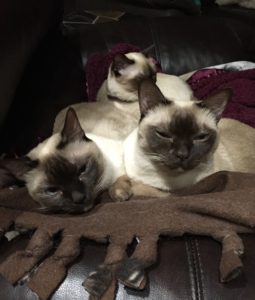

Ready to go home!
I cannot urge you enough to look at your pet’s food through a new set of lenses. Does what you feed your pet even look like real food “off the vine?” Do you even know what all those ingredients are on the label? While our pets’ bodies–and our own for that matter–are very resilient, over time toxins, unnatural ingredients and heating processes will take their toll, and you’ll find yourself at a crossroads. Do you continue on this damaging path or is it time to forge a new trail?
Rocket’s diet has been 90% raw and absolutely no kibble for several years, so I’m guessing his condition was caused by something airborne he was exposed to, not his diet. In the meantime, we will continue to work towards healing him in the most natural, “from the vine” way as possible. He is my teacher, and we are learning together as we forge ahead following a different path.
Can I help you?
Chances are good that you’re reading this blog because something inside you resonates with finding natural alternatives to health. If you have questions, if I can be of help to you or your kitty, or if you have a story to share please submit a comment below. I look forward to hearing from you!
Don’t miss our posts! You can sign up here.


